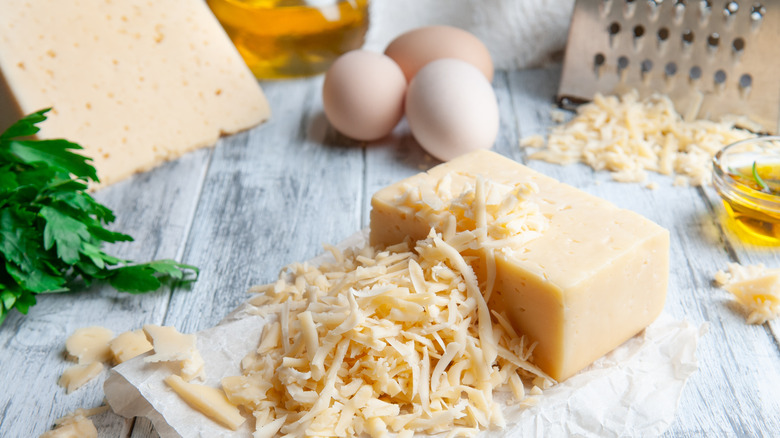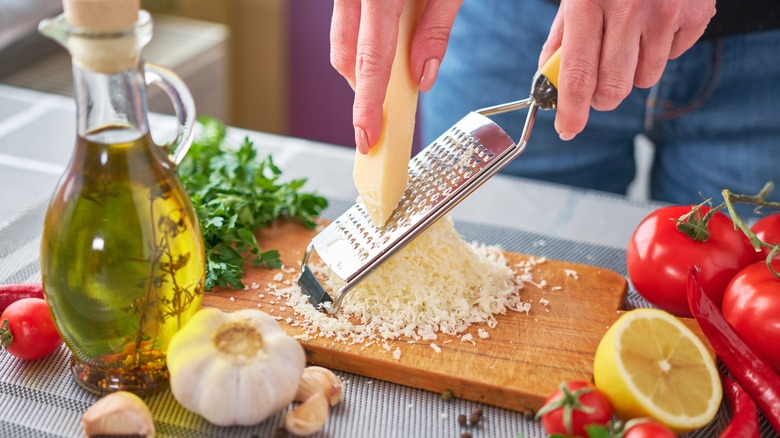The Clever Plastic Bag Method For Storing Grated Cheese
Grated cheese is conveniently sold in bags at pretty much every grocery store. But if you've ever done a side-by-side comparison of bagged, pre-shredded cheese versus cheese that is freshly grated off the block, you can almost immediately taste a difference in freshness, texture, and moisture. If you have a bit of extra time, it's worth breaking out the cheese grater and shredding your own. But next time you grate your own cheese, try adding a plastic bag to the bottom of the grater. Scrunch it up, then grate your cheese as normal — the plastic bag will catch it all without you having to do a thing.
A big downside to grating your own cheese is having to take the cheese shreds and bag them up since you inevitably won't be able to grab it all in one handful; it leaves you picking up individual pieces and creates a mess on the cutting board. Thankfully, this plastic bag hack is the secret to keeping the process easy.
Try this plastic bag hack for easy grated cheese
Thanks to an Instagram video from thedadbriefs, next time you're grating cheese at home, place a plastic bag around the bottom of a box grater; a medium-sized snack bag should fit comfortably around the grater's base. When you're done grating, the cheese will fall right in, though you might need to give it a little shake to get the shredded cheese out from the grater and into the bag. From there, just seal up the bag, and you can easily pop it into the refrigerator and store it for several weeks. If you're shredding a hard cheese like cheddar, the USDA says it will last about one month in the fridge.
This trick works best with cheeses that are easy to grate. A firm cheese like cheddar or parmesan is perfect. Softer cheese, like fresh mozzarella, might be a little harder to work with on a cheese grater. To make the process easier, you can freeze the mozzarella for about 30 minutes, which will help it firm up enough to use this hack.
Why you should grate your own cheese
Although there is a little more elbow grease needed with your cheese grater versus buying the cheese, freshly grated cheese lacks additives and preservatives, which are often used in shredded cheese to prevent clumping. While those preservatives are safe to consume, they alter the cheese's natural texture, making it dryer and harder to melt. If you're using cheese in any kind of baked dish, then grating it yourself is the way to go. You'll also notice that since there are no additional elements added to a block of cheese, it tastes fresher and has a better texture.
Once cheese is shredded, its shelf life doesn't diminish, but the longevity of cheese varies depending on what type you're using. For instance, while a firm cheese like freshly grated cheddar lasts weeks, a ball of fresh mozzarella lasts only around five days. Packaged cheese companies like Sargento recommend consuming shredded cheeses within five days of being opened as well.


